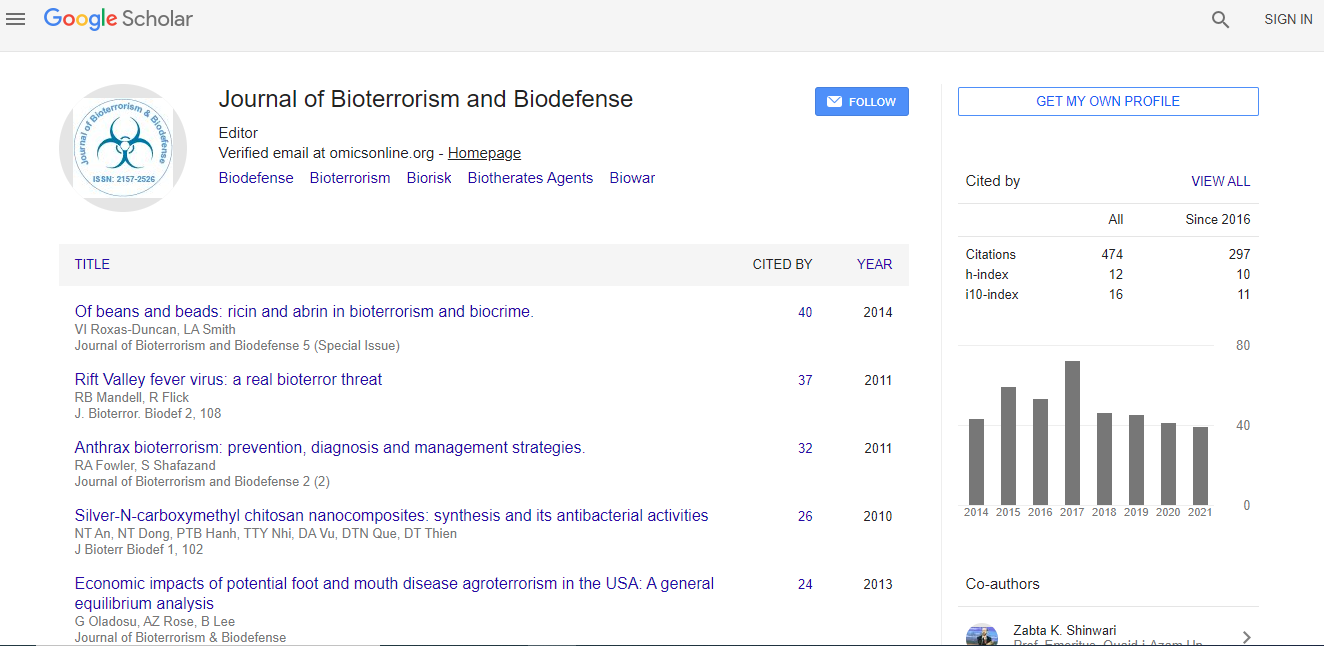Review Article
Vesicular Stomatitis Virus-Based Vaccines for Prophylaxis and Treatment of Filovirus Infections
Andrea Marzi1*, Heinz Feldmann1, Thomas W. Geisbert2,3 and Darryl Falzarano1
1Laboratory of Virology, Division of Intramural Research, National Institute of Allergy and Infectious Diseases, National Institutes of Health, Hamilton, Montana, USA
2Galveston National Laboratory University of Texas Medical Branch, Galveston, Texas, USA
3Department of Microbiology and Immunology, University of Texas Medical Branch, Galveston, Texas, USA
- *Corresponding Author:
- Dr. Andrea Marzi
Laboratory of Virology
Rocky Mountain Laboratories
903 South 4th Street
Hamilton, MT 59840, USA
Tel: +1-406-375-7421
Fax: +1-406-375-9620
E-mail: marzia@niaid.nih.gov
Received Date: July 28, 2010; Accepted Date: September 07, 2011; Published Date: September 25, 2011
Citation: Marzi A, Feldmann H, Geisbert TW, Falzarano D (2011) Vesicular Stomatitis Virus-Based Vaccines for Prophylaxis and Treatment of Filovirus Infections. J Bioterr Biodef S1:004. doi: 10.4172/2157-2526.S1-004
Copyright: © 2011 Marzi A, et al. This is an open-access article distributed under the terms of the Creative Commons Attribution License, which permits unrestricted use, distribution, and reproduction in any medium, provided the original author and source are credited.
Abstract
Ebola and Marburg viruses are emerging/re-emerging zoonotic pathogens that cause severe viral hemorrhagic fever with case-fatality rates up to 90% in humans. Over the last three decades numerous outbreaks, of increasing frequency, have been documented in endemic regions. Furthermore, as a result of increased international travel filovirus infections have been imported into South Africa, Europe and North America. Both viruses possess the potential of being used as bioterrorism agents and are classified as category A pathogens. Currently there is neither a licensed vaccine nor effective treatment available, despite substantial efforts being dedicated to understanding filovirus pathogenesis as well as vaccine and drug development. One of the most promising vaccine platforms is based on replication competent recombinant vesicular stomatitis viruses (rVSV) that express a filovirus glycoprotein as the surface antigen. These rVSVs have been extensively studied in rodent and nonhuman primate models of filovirus disease and, in general, have been shown to be 100% protective in pre-exposure prophylaxis. In addition, rVSVs have demonstrated potential for post-exposure treatment, and thus would be particularly useful in the event of intentional release as well as accidental exposures in outbreak and laboratory settings.

